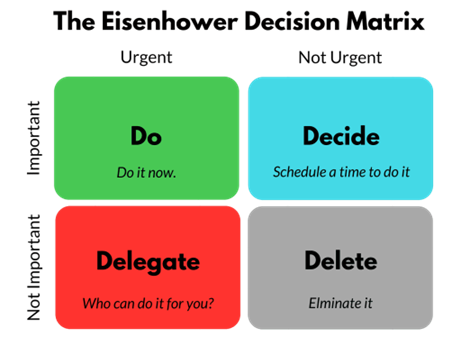Rutherford Cross Consultant, Ally Deas, highlights the importance of time management, particularly for part-qualified accountants who are looking to complete their qualifications. He explains the Eisenhower Model and the benefits it can have when utilised by part-qualified accountants in their studies.
I speak to part-qualified accountants every day, as well as the clients looking to recruit them across the central belt. Most of the time, employers who are recruiting at this level want to know how soon candidates will be qualified. Hiring managers have been through the pain of becoming qualified themselves, so they appreciate the timescales and understand what is realistic. The important question is whether the candidate is actively studying. Moving forward at any pace is always better than treading water.
Being actively engaged in your studies might make a difference in what your next role is, as the closer you are to getting qualified, the more appealing you are to an employer. So why not control the controllables, get your exams booked and get studying? If only it was that easy! Rather than simply pointing out the obvious, I thought to introduce a Time Management tool that I have found useful over the years.
Eisenhower’s Model
For part-qualified accountants who are juggling the demands of studying, sitting exams, and working to tight deadlines, effective time management is not just a skill—it’s a necessity. Eisenhower’s Model provides a structured framework that can be particularly valuable in balancing responsibilities at work with a professional qualification. Let’s explore how this model can be applied to the unique challenges faced by part-qualified accountants.

Identifying Priorities
Your time is divided among various commitments, including studying for exams, fulfilling work responsibilities, and maintaining a work-life balance. Using Eisenhower’s Model, you can categorise your tasks into the following quadrants:
- Urgent and Important (Do): This quadrant encompasses tasks such as meeting critical work deadlines, preparing for imminent exams, and addressing urgent client inquiries. Prioritise these tasks to ensure you meet immediate obligations and avoid last-minute scrambles.
- Important but Not Urgent (Decide): Allocate time for tasks that contribute to your long-term career advancement and personal growth, such as studying for future exam sittings, networking with industry professionals, and investing in professional development opportunities.
- Urgent but Not Important (Delegate): Identify tasks that can be delegated to colleagues, support staff or your partner, allowing you to focus on higher-priority activities. This may include routine administrative tasks, minor client requests, and non-essential responsibilities that do not require your immediate attention.
- Not Urgent and Not Important (Delete): Minimise distractions that detract from your productivity and focus. While it’s essential to take breaks and recharge, be mindful of unproductive meetings that consume valuable time without adding value to your professional or academic pursuits.
Strategic Implementation
Applying Eisenhower’s Model as a part-qualified accountant involves strategic planning and disciplined execution. Here’s how you can leverage this framework to optimise your time management:
- Prioritise Exam Preparation: Allocate dedicated study time for each exam sitting, focusing on areas of weakness while maintaining a balance between revision and practical application.
- Balance Work Responsibilities: Manage your workload effectively by identifying key deliverables and deadlines, communicating with colleagues about your availability, and proactively addressing urgent work tasks while maintaining a focus on long-term projects and strategic initiatives.
- Invest in Continuous Learning: Embrace opportunities for professional development and skill enhancement, whether through additional qualifications, industry certifications or specialised training programs.
- Delegate Non-Essential Tasks: Delegate where possible to free up your time to focus on higher-value activities that require your expertise and attention. Effective delegation can enhance efficiency and productivity while empowering team members to develop new skills and capabilities.
Benefits for Part-Qualified Accountants
By utilising Eisenhower’s Model in your daily routine you can experience several benefits, including:
- Improved time management and productivity by prioritising tasks based on their urgency and importance.
- Enhanced focus and clarity on exam preparation, work responsibilities, and career development objectives.
- Reduced stress as a result of proactively addressing deadlines, delegating non-essential tasks, and maintaining a healthy work-life balance.
- Greater efficiency and effectiveness in managing competing priorities, leading to increased job satisfaction and professional success.
Eisenhower’s Model offers a practical framework for part-qualified accountants to navigate the complexities of studying, sitting exams, and working in their accounting roles. Hopefully this model can help you control your controllables!
If you are a part-qualified accountant looking for your next role, please reach out to Ally for a confidential discussion – [email protected].


Strategic Time Management for Part-Qualified Accountants: Applying Eisenhower’s Model
Rutherford Cross Consultant, Ally Deas, highlights the importance of time management, particularly for part-qualified accountants who are looking to complete their qualifications. He explains the Eisenhower Model and the benefits it can have when utilised by part-qualified accountants in their studies.
I speak to part-qualified accountants every day, as well as the clients looking to recruit them across the central belt. Most of the time, employers who are recruiting at this level want to know how soon candidates will be qualified. Hiring managers have been through the pain of becoming qualified themselves, so they appreciate the timescales and understand what is realistic. The important question is whether the candidate is actively studying. Moving forward at any pace is always better than treading water.
Being actively engaged in your studies might make a difference in what your next role is, as the closer you are to getting qualified, the more appealing you are to an employer. So why not control the controllables, get your exams booked and get studying? If only it was that easy! Rather than simply pointing out the obvious, I thought to introduce a Time Management tool that I have found useful over the years.
Eisenhower’s Model
For part-qualified accountants who are juggling the demands of studying, sitting exams, and working to tight deadlines, effective time management is not just a skill—it’s a necessity. Eisenhower’s Model provides a structured framework that can be particularly valuable in balancing responsibilities at work with a professional qualification. Let’s explore how this model can be applied to the unique challenges faced by part-qualified accountants.
Identifying Priorities
Your time is divided among various commitments, including studying for exams, fulfilling work responsibilities, and maintaining a work-life balance. Using Eisenhower’s Model, you can categorise your tasks into the following quadrants:
Strategic Implementation
Applying Eisenhower’s Model as a part-qualified accountant involves strategic planning and disciplined execution. Here’s how you can leverage this framework to optimise your time management:
Benefits for Part-Qualified Accountants
By utilising Eisenhower’s Model in your daily routine you can experience several benefits, including:
Eisenhower’s Model offers a practical framework for part-qualified accountants to navigate the complexities of studying, sitting exams, and working in their accounting roles. Hopefully this model can help you control your controllables!
If you are a part-qualified accountant looking for your next role, please reach out to Ally for a confidential discussion – [email protected].
Can we help?
If you are looking for finance recruitment support, please get in touch with our team of experts.
More Articles...
Why Audit? An Interview with Kevin Duthie, Partner at EY
Rutherford Cross Sponsors Record-Breaking ICAS Admission Ceremony
Future Finance Leaders Forum with Laura Millar of International Beverage